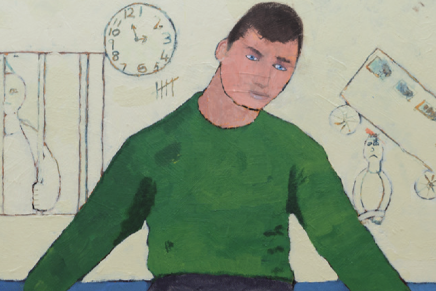 A joint inspection on youth resettlement work by the HM Inspectorate of Probation and HM Inspectorate of Prisons has found that Young Offender Institutions (YOIs) are not providing effective resettlement programmes for children leaving custody. The inspection found that resettlement preparations were often fragmented, resource-led and overdue. Examples of bad practice include initiating resettlement planning on the day of release. This left some children without appropriate preparations, which exposed them to unsafe accommodation.
A joint inspection on youth resettlement work by the HM Inspectorate of Probation and HM Inspectorate of Prisons has found that Young Offender Institutions (YOIs) are not providing effective resettlement programmes for children leaving custody. The inspection found that resettlement preparations were often fragmented, resource-led and overdue. Examples of bad practice include initiating resettlement planning on the day of release. This left some children without appropriate preparations, which exposed them to unsafe accommodation.
In the first three months of 2019, almost 14% of children released from custody had 10 or less days’ notice of where they would live. Similarly, there was inadequate planning for education, employment and mental health support. Worryingly, 37% of children in YOIs (where around 70% of the total population of under-18s in custody are detained) were placed 50 miles or more from their homes. This may isolate some children from support networks that are vital to their reintegration.
The report also found that resettlement work often takes a one-size-fits-all approach in which individual needs are missed, a situation that results from a focus on resources available rather than the requirements of children. The available support is fragmented, with services rarely coordinating with one another. There were, for example, no instances of cooperation between internal health services and external agencies.
As part of the advocacy team at Just for Kids Law, I regularly assist children and young people in similar situations. Many face a deficit of resources, both in custody and in their communities. This frequently means that as soon as they are released, they end up having to deal with the same issues that contributed to their offending in the first place. This is exacerbated by the fact that some have developed further vulnerabilities through being in custody.
The situation is not necessarily better for individuals with experience of being “looked after” by their local authority. Some of the children and young people we work with have had their care cases closed on the day of their conviction. This premature move meant that a proper handover did not take place.
I recently supported a care leaver who left a YOI in February 2019. With no support plan in place, he sofa surfed for several months before contacting us. By the time the local authority had agreed to re-open his case his mental health had deteriorated, along with any hope that he would be helped.
Fragmented and inadequate support thwarts rehabilitation. Without a real prospect of a second chance, it is easy to imagine how people re-enter destabilising situations. Perhaps unsurprisingly, the most recent data from the Ministry of Justice shows that 70% of children serving sentences of less than 12 months end up being charged with further crimes after being released.
The joint inspection report also highlights good practice, where services use multi-agency approaches. In Jacob's case, for example, agencies worked together to deliver support during and after his sentence. Work addressed all areas of need, including addiction, education and housing. This helped Jacob to secure full-time employment and address his addition.
The report makes a number of recommendations, including the development of a central payment system to ensure that accommodation is secured at least one month before a young person is released; a co-ordinated approach to resettlement work; and, using data to inform improvements in service provision.
This alone will not bridge the gaps in provision. There needs to be a drive towards a child centred approach to services tasked with supporting some of the most vulnerable young people during incredibly critical situations. This would involve a multi-agency plan being co-developed with the young person well in advance of them leaving custody so that they are not repeatedly turned away from services that should be offering assistance. Until this is addressed, the punitive aspect of custody will continue to extend way, way beyond the custodial term.
Justin Johnson is a Youth Advocate at Just for Kids Law.
